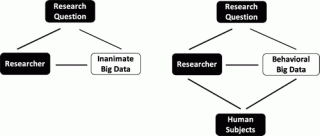On Saturday morning, I'll present a talk on "A Tree-based Approach for Addressing Self-Selection in Impact Studies with Big Data" at the 1st INFORMS Workshop on Data Science in Houston, TX. I'll describe our proposed tree-based approach as an alternative to propensity scores, which has several advantages over PSM. This is joint work with Inbal Yahav and Deepa Mani, published in MISQ in 2016.
When: Saturday, Oct 21, Session 1A (9:00 – 10:30)
Where: Hilton Americas-Houston, Level 3, Room 344


